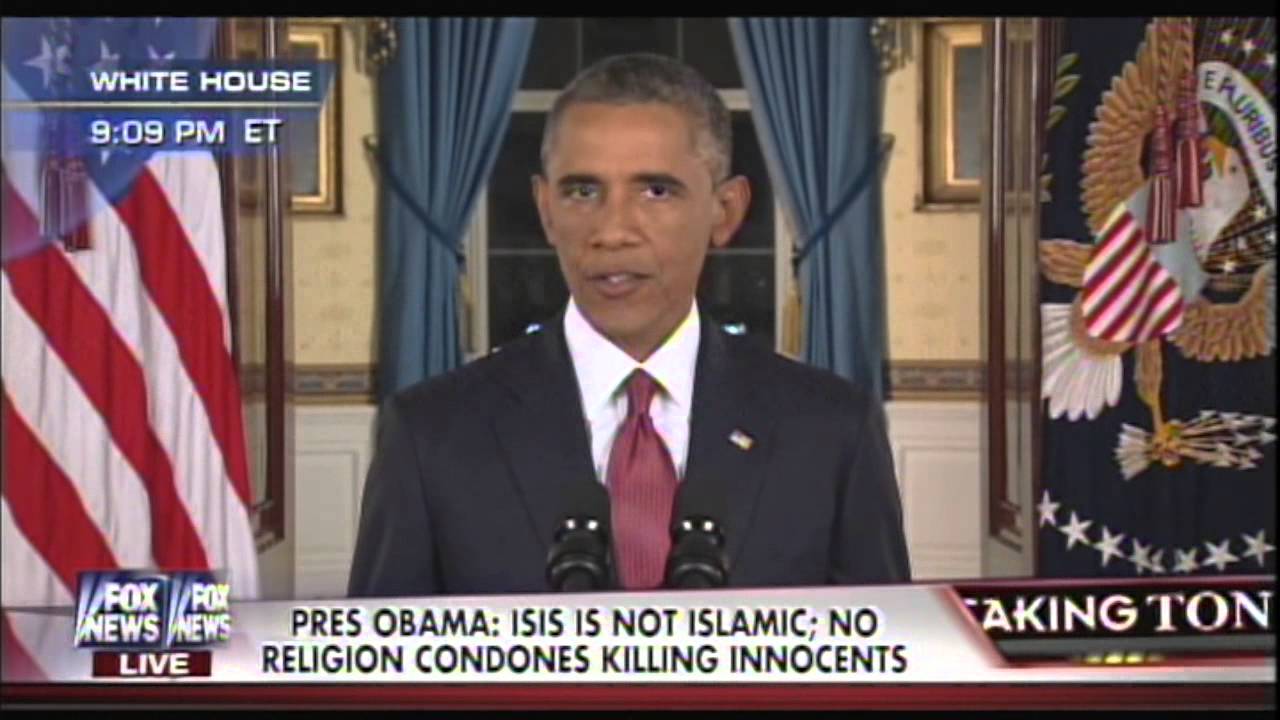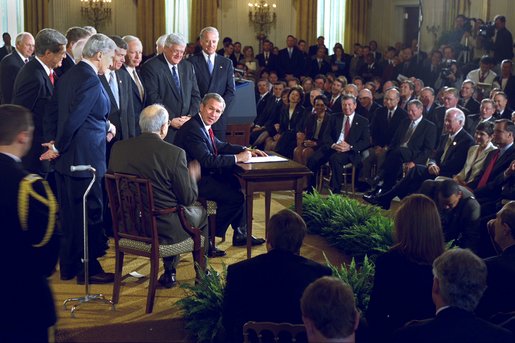Militarism in Time of Pandemic: The Arrogance of the (Ongoing) US War in Iraq
•
Amid a Corona news blackout, Danny Sjursen says Americans are expected to forget, or ignore, that the Iraqi parliament recently asked the U.S. military to leave.

Speaker of Iraqi Parliament concluding Jan. 5, 2020, vote on expelling U.S. troops. (YouTube still)
 Look, I’m no doctor; not a scientist; certainly no expert in epidemiology. So I’ve kept silent, for the most part, on the Coronavirus. Being more than a little out of my depth on the subject, I’ll continue to do so. Nonetheless, it is striking how the disease outbreak has swallowed the news cycle whole, totally blotted out the sun of reportage on America’s ongoing militarist wars. While almost certainly not the cause or initial motive, 24/7 Corona-coverage has been convenient for the Establishment media and political elites: a beyond-reproach justification for total blackout for U.S. wars and violent interventions that continue to kill our soldiers and — in far greater numbers — foreigners unlucky enough to live in the vast, contested expense from West Africa to Central Asia.
Look, I’m no doctor; not a scientist; certainly no expert in epidemiology. So I’ve kept silent, for the most part, on the Coronavirus. Being more than a little out of my depth on the subject, I’ll continue to do so. Nonetheless, it is striking how the disease outbreak has swallowed the news cycle whole, totally blotted out the sun of reportage on America’s ongoing militarist wars. While almost certainly not the cause or initial motive, 24/7 Corona-coverage has been convenient for the Establishment media and political elites: a beyond-reproach justification for total blackout for U.S. wars and violent interventions that continue to kill our soldiers and — in far greater numbers — foreigners unlucky enough to live in the vast, contested expense from West Africa to Central Asia.
Generally, I’m a decidedly Occam’s Razor sort of guy: which is to say, one who never rules out the preeminence of contingency and rank incompetence as an explanatory tool for world events. Conspiracy peddling is hardly my go-to position. Still, however this Corona emergency turns out – passing (let’s hope) panic or zombie apocalypse – it must be said that the wall-to-wall disease reporting serves as an opportune disciplining tool. To wit, while it’s totally acceptable to utilize Corona as a cudgel – by the Establishment “Left,” and its peculiar neoconservative allies – to batter (perhaps somewhat appropriately) President Donald Trump, any critical analysis of the media response and its failure to report other war-related news is beyond the pale. Count me skeptical of the polite, prevailing band of admissible discourse.
After all, some profound events have unfolded during said Corona-blackout. Like a few days ago, when, less than 24 hours after the House voted to limit (albeit symbolically) Trump’s ability to wage war on Iran, U.S. fighter jets bombed five sites linked to ostensibly Iranian-backed Iraqi Shia militias. This transpired, we are told, in response to an Iraqi militia rocket attack that killed two U.S. troopers and a British national. Another deadly tit-for-tat escalation in another endless American war; and it was met by something approaching silence. Outside of alternative media – and, due to the Coronavirus, muted even by those standards – there was no public outcry, no fresh questioning of American strategy in Iraq or whether that ongoing war furthers U.S. interests or homeland security. There was nothing.

The Pentagon. (Defense Department)
Cursory Justificaiton
Naturally, the Defense Department and senior administration officials did treat a Corona-cowed-citizenry to cursory justifications for the strikes. Nothing too immersive, of course — after all, ours is a Pentagon that has at times gone over a year without holding an official press briefing — but just enough Orwellian explanation to soothe their consciences and reassure a blinded populace that there’s nothing-to-see-here. Still, as one who, despite it all, happens to believe that words matter, I found the language of said rationales both instructive and chock-full of arrogance and unexamined assumptions.
For example, the Pentagon’s written statement explained that “These strikes were defensive, proportional, and in direct response to the threat posed by Iranian-backed Shia militia groups…” Defensive…now there’s the rub. Yes, U.S. and British-little-brother coalition troops were, quite unfortunately, killed, once again, in Iraq. That seems certain. Only, dare I ask, what exactly, is “defensive” about the actual foundation of U.S. policy in Iraq: i.e. maintaining some 5,000 troops in that country for nearly 17 years in the face of mass, and long-standing, opposition from significant quarters of two — Sunni and Shia Arab — of the three main ethno-sectarian communities therein?
Fascinating, isn’t it, that hardly anyone — and almost no one in a position of real influence — questions the underlying reality of American military occupation in Iraq. Instead, the national-security-wing Trumpeteers — and the Obamaites and Bushies before them — deliberately erase any semblance of context and pretend the Iraq conflict began with whichever latest attack these supposedly Iranian-“controlled” militias unleashed on innocently Iraq-ensconced American soldiers.
Yet, in all the obligatory, almost obsessive, inclusions of the prefix “Iranian-backed,” lost is any and all recognition or sober analysis of the Iraqi agency and motives behind the recent — but wholly consistent (since at least the April 2004 Shia uprising against U.S. occupation) — spate of attacks. That’s by design; a sleight-of-hand meant to erase any acknowledgment of Iraqi nationalist — even among America’s promised (since 2003), and current, purported Shia allies – grievances against a lengthy military occupation. We the People are meant to forget, or ignore, the pesky, inconvenient fact that they — the Iraqi people through their parliamentary representatives — fairly recently asked (via that cherished American method of voting) the U.S. military to leave.
Rejecting Iraqi Parliament
In response, it was the U.S. empire – in this case, its Trumpian spokesmen – which flatly refused to respect the originally (and ironically) U.S.-installed Iraqi parliament’s prerogative, in a bout of hegemonic imperial arrogance that beggars belief. The president reflexively responded with the threat of sanctions — and Secretary of State Mike Pompeo added the unsubstantiated, hardly scientific claim that he was “confident that the Iraqi people want the United States to continue to be there.” That demonstrated, once and for all, that national sovereignty has serious limitations. Thereby, Iraq is sovereign only to the extent that it bends to the will of Washington and the Pentagon’s militarist proclivities — specifically, the U.S. desire to utilize Mesopotamia as a proxy battleground with Iran.
All of which illustrates just how far off-the-rails the U.S. military mission in Iraq has run. Remember how this all began, after all, this crusade in Babylon. In 2002-03, the American people were told — patronizingly lectured to, really — that a hasty military invasion to depose Saddam Hussein was necessary in order to protect the homeland from the imminent threat of Iraq’s (nonexistent) WMD arsenal and to counter the regime’s (imaginary) collusion with Al Qaeda. The Iraqi people — especially the embattled Shia — the public was assured, would welcome said invasion with open-arms and rose-petals. When both primary justifications for the invasion were proven (at best) epically mistaken, or (at worst, and more likely) deliberate, bold-faced lies, and after even significant Shia elements rose up against the U.S. military occupation with nationalist vehemence, well, then, the Bush-team pivoted to the moralizing fraud of “Freedom Agenda,” necessary-dictator-removal, justification rhetoric.

President Barack Obama announces latest U.S. bombing of Iraq on Sept. 10, 2014.
Later, when President Barack Obama reentered – in a decidedly open-ended mission – Iraq in force, the prevailing rationalization was ISIS-defeat. Then, when ISIS was decisively crippled, Obama pivoted to the use of Iraq as a basecamp for apparently equally requisite and vital operations in Syria. Trump, elected (not unlike Obama) on a promised anti-war platform, then relied on the ostensible Iranian bogeyman next-door when he, too, decided to maintain a substantial military footprint in Iraq. Unquestioned, and left to their own nefarious devices (with a current assist from Corona), it seems that bipartisan foreign policy elites possess a bottomless bag of ready rationales for an Iraq War gift that keeps on giving.
Lost in the fog of apathy, context-erasure, information-suppression, and alt-media-exclusion, is any sense of the shaky legal, strategic, and ethical underpinnings of America’s second (after Afghanistan) longest war in its history. Time and again, many others and I have diligently diagnosed the a-strategic counter-productivity and moral bankruptcy of both major U.S. wars. Tabling that, for present purposes, it is the ostensible legal foundations of, in this case, the current manifestation of the Iraq War, that are most plainly absurd.
Here’s a related, and instructive, question: under what domestic or international sanction, precisely, is the current U.S. military presence in — and consequent bombing of — Iraq based? After all, there have been only two congressional authorizations for the use of military force (AUMFs) during the last two decades of forever war. The first, in September 2001, authorized the president to “use all necessary and appropriate force against those nations, organizations, or persons he determines planned, authorized, committed, or aided the [9/11] terrorist attacks…”. Well, there were no Iraqis (and certainly not any Shiites) on those hijacked planes, and Saddam Hussein — who, incidentally, was long ago hanged to death — had no role in the terror attacks in question, so AUMF option No. 1 can’t reasonably apply.

President George W. Bush signing resolution authorizing the use of force against Iraq, Oct. 16, 2002. (White House)
Okay, but what about the second, more clearly Iraq-focused, October 2002 AUMF? Problem is, even that one only authorized the president to “use the Armed Forces of the United States as he determines to be necessary and appropriate in order to…defend the national security of the United States against the continuing threat posed by Iraq.” No mention of Iran; nothing about (then nonexistent) subnational (Shia) militias. Furthermore, unless the linguistic meaning of “self-defense” is farcically stretched beyond the definition in Article 51 to the United Nations Charter, the fact that the AUMF’s stated “threat” — the Saddam regime of Iraq — has been deposed and replaced, indicates that even the second potential legal sanction is quite obviously inapplicable to the current circumstances.
In sum, litigious reasoning aside, anti-occupation Iraqi nationalists —whether they choose to align, or not, and to whatever actual extent, with neighboring Iran — have a point. The U.S. military defiantly sits on their turf, despite parliamentary calls for its departure, and continues to wield violence according to Washingtonian whims. Furthermore, characterizations of the alleged Iranian threat (within Iraqi borders, or otherwise) as “existential” to U.S. national security are blatantly preposterous. It is, at certain times, helpful to review foreign adventures from the viewpoint of an uninterested alien observer. Such an extraterrestrial policy wonk might cogently question how the United States has sent its troops 6,000 miles away, kept them there for nearly two decades, fighting whom exactly, and just what threat “they” pose to the homeland? Recent history suggests that our alien friend wouldn’t receive very satisfying answers … would probably be treated to just another written statement from the Pentagon.
Deliberate erasure by a bipartisan political-media alliance, and the consequent languor of a frightened, exhausted, and uniformed populace, may serve a power elite which requires as much to maintain unchallenged preeminence (whilst counting the profits). However, it does not, by any measure, benefit the (statistically) underprivileged U.S. troops doing the killing and dying in the People’s name, their countless foreign victims, or the remaining institutions of American Democracy.
Most of the populace will likely survive the Coronavirus. Should these absurd, endless wars continue even a little longer, the republic may not…
Danny Sjursen is a retired U.S. Army officer and contributing editor at antiwar.com.His work has appeared in the LA Times, The Nation, Huff Post, The Hill, Salon, Truthdig, Tom Dispatch, among other publications. He served combat tours with reconnaissance units in Iraq and Afghanistan and later taught history at his alma mater, West Point. He is the author of a memoir and critical analysis of the Iraq War, “Ghostriders of Baghdad: Soldiers, Civilians, and the Myth of the Surge.” His forthcoming book, “Patriotic Dissent: America in the Age of Endless War” is available for pre-order. Follow him on Twitter at @SkepticalVet. Check out his professional website for contact info, scheduling speeches, and/or access to the full corpus of his writing and media appearances.
This article is from Antiwar.com.




Geen opmerkingen:
Een reactie posten